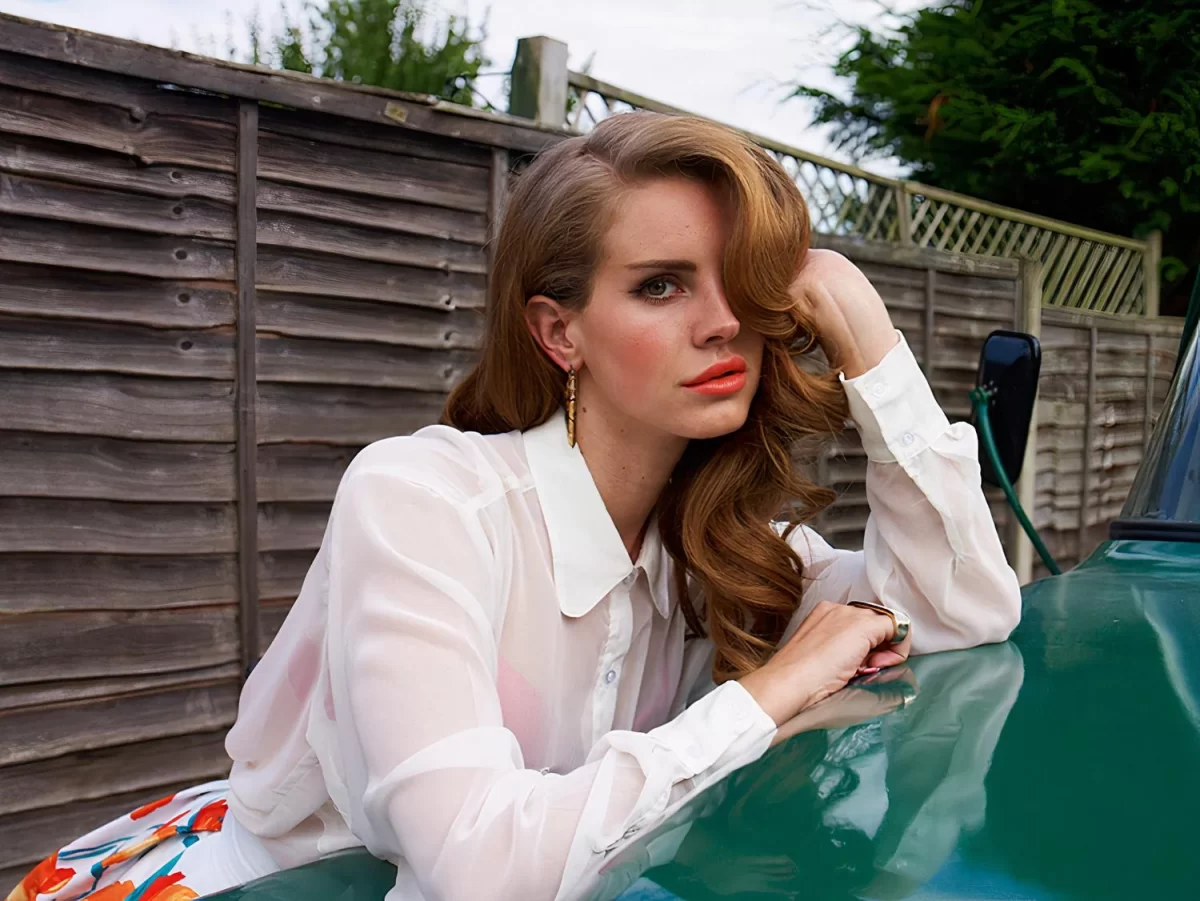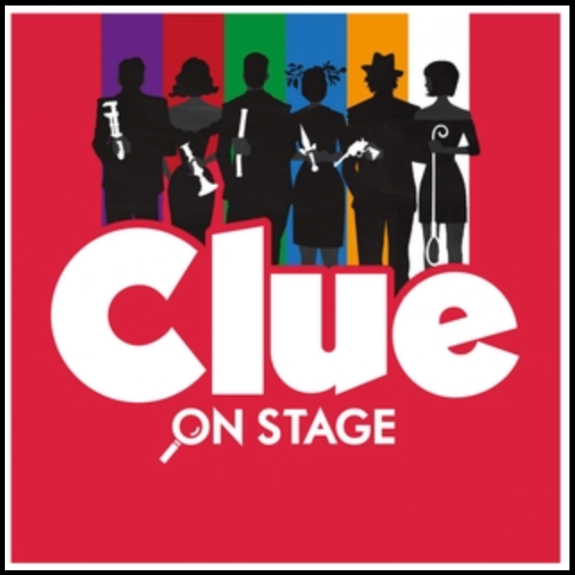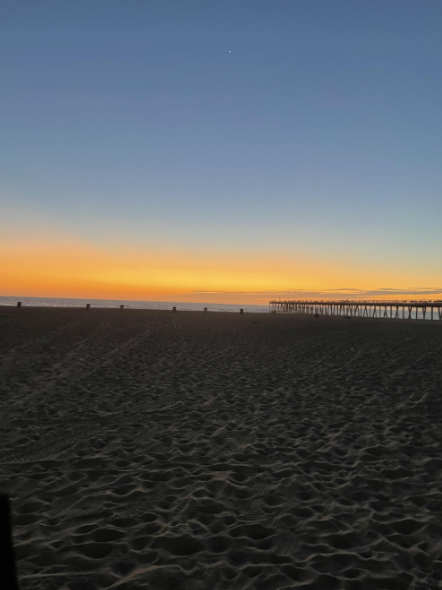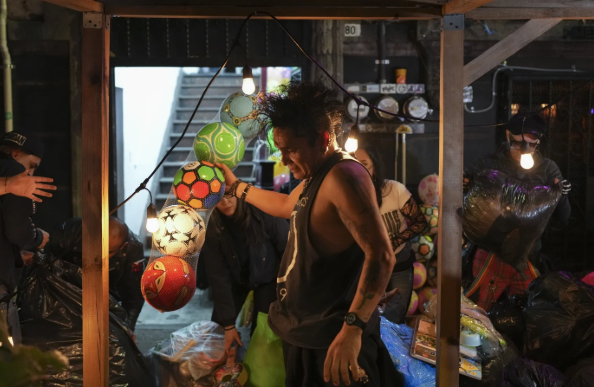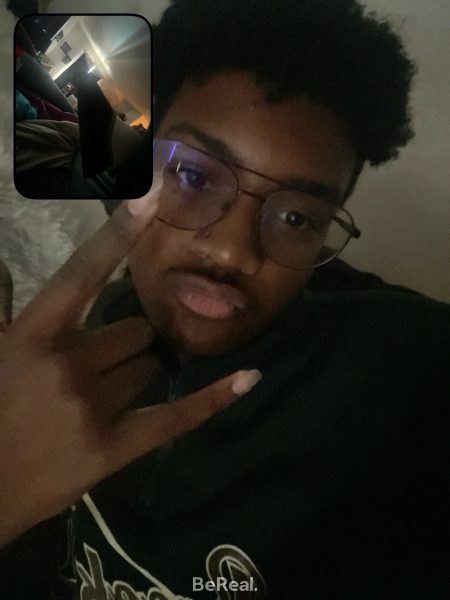STOCKTON – On January 27, 2012, Elizabeth Woolridge Grant, artistically known as Lana Del Rey, released her major label debut album, Born to Die, a 13-track alternative album made up of hip-hop infused torch songs. This is the first time Grant has released music under the name, Lana Del Rey, with her having released two albums prior to this under the names, May Jailer and her real name, Lizzie Grant. Sonically, the album takes elements from the baroque and chamber pop genres, combining it with more contemporary genres like hip hop and EDM music.
The album, Born to Die, is lyrically about Grant’s life prior to the release of her debut album. Elizabeth Woolridge Grant was born and raised in Lake Placid, New York. At the age of 14, Grant was sent away to Kent School, a private boarding school in Kent, Connecticut, due to her severe alcoholism. The content of the songs take place in between this time in her life up until the age of 26 when the album came out.
In the opening track of the album, Born to Die, starts the album off with an orchestra and an electronic percussion instrument layered over the top of it. Grant sticks to her lower register throughout the song, which is something that we see come through a lot in her later works. This is the start of the overall sonic theme of orchestral music combined with elements of hip-hop and pop music. Lyrically, the song is about, as Grant would put it, “ a homage to true love and a tribute to living life on the wild side. ” In the song, Grant proclaims everyone, including her, is “born to die. ” “Choose your last words, this is the last time/’Cause you and I, we were born to die (Grant, Born to Die)” In the song’s music video, it cuts between Grant in an empty chapel sitting in a throne-like seat and her with a man (presumed to be her boyfriend) living their lives with Grant in the end being carried out of a burning house by her boyfriend, covered in blood.
Track two on the album, Off to the Races, continues the orchestra sound of the previous song, Born to Die, while also implementing guitars and heavier percussion instruments. Sounds of cheering can also be heard in the background of the song, alluding to the title and the theme of the song. This song is also an introduction to Grant’s ‘Lolita’ character, inspired by the 1955 novel of the same name. In this song, Grant sings both in her lower register and her high register, with her singing the chorus fully in the higher register, signifying the Lolita character. Lyrically, the song is about Grant professing her love to her very wealthy boyfriend, describing their “perfect” Bonnie and Clyde-like relationship. Though Grant proclaims many times throughout the song that she can’t live without him, it is evident that the relationship was always meant to fail. “I’m not afraid to say that I’d die without him/Who else is gonna put up with me this way?/I need you, I breathe you, I’d never leave you (Grant, Off to the Races)”
Blue Jeans, Born to Die’s third track, expands on the sounds introduced in the previous song, Off to the Races, with guitar and heavy percussion being the main instrumental element and the orchestral moments of the song being used more sparsely than in Born to Die. Vocally, Grant sticks to her signature lower register, projecting it as almost a growl in the verses and then switching to an airier delivery in the chorus. When asked by The Daily Telegraph, Grant had this to say about the song’s meaning, “I met this person I was going to spend the rest of my life with. We were both clean and sober. We lived together and then he started getting into trouble, and he had to leave. There’s a lot of facets to my life, they don’t all seem like they would come together. It’s been a strange ride. ” In the music video, filmed like a black and white noir film, Grant is seen through a pool as her lover watches. The video ends with her lover getting into the pool and dragging the both of them underwater.
The fourth track, Video Games, brings the listener back to the orchestral realm with the song being let instrumentally by a soft piano and crisp harp, creating an almost whimsical sound. Much like in Born to Die, Grant sticks to her lower register throughout the whole song projecting her voice in a soft and airy way to match the instrumental. Although on the surface the song sounds like a love song, lyrically, the song is about Grant longing for her lover to appreciate her instead of constantly indulging in things besides her, in the verse she tells the story of a previous relationship which serves as a contrast in the chorus where she is longing for her relationship to be everything it was with her past lover. “It’s you, it’s you, it’s all for you, everything I do/I tell you all the time, Heaven is a place on Earth with you (Grant, Video Games)” In the music video, we see random clips spliced together with clips of Grant lip syncing the song’s lyrics. This music video is one of three like it, random clips spliced together with clips of Grant lip syncing in between with the others being, the original Blue Jeans music video and the Carmen music video.
Born to Die’s fifth track, Diet Mountain Dew, leans completely into the hip hop elements of the album with the song being composed like a hip hop song. Dissonant piano keys, boom bap drums, and melodic chanting combined with Grant’s signature orchestral sound. The instrumental takes heavy inspiration from 90’s New York hip hop. In this song, Grant finds a middle ground between her lower register and her high-pitched almost whiny ‘Lolita’ voice, with the higher voice being more prominent in the verses and background chants. Lyrically the song is about a relationship that Grant knows is no good for her but she stays because she loves the high she gets from being in the relationship. Grant uses Diet Mountain Dew as a metaphor for their relationship, with her comparing her relationship to a drink that is advertised as healthy but in actuality is just as bad for you. “You’re no good for me/Baby, you’re no good for me/You’re no good for me/But, baby, I want you, I want you (Grant, Diet Mountain Dew)”
Track six, National Anthem, rides on the coat tales of Diet Mountain Dew harboring a more hip hop sound, this time leaning more towards orchestral, with 808s mimicking fireworks constructing the baseline. This song, much like Born to Die, sees Grant stick to her lower register and only projecting it in the booming chorus. Lyrically, Nation Anthem is a conceptual song alluding to the life and death of President John F. Kennedy as well as his wife Jacqueline Kennedy-Onassis and his rumored lover Marilyn Monroe, with the point of views of the women alternating in the verses and eventually coming together in the bridge. Verse one, which is told from the perspective of Jacqueline, is more mellow and seems to be seen by her husband as more of a trophy than an actual person with feelings, in the end she calls for him to protect her from the tragedies of the world. “He loves to romance ’em/Reckless abandon/Holdin’ me for ransom, upper echelon/He says to be cool, but I don’t know how yet. (Grant, National Anthem)” Verse two, told from the perspective of Marilyn, is more confident and sure of herself, with her lover wrapped around her finger, she sees him only as a means to her gaining success. “I sing the national anthem/While I am standin’ over your body/Hold you like a python/And you can’t keep your hands off me or your pants on/See what you’ve done to me, King of Chevron?/He said to be cool, but I’m already coolest. (Grant, National Anthem)” The music video begins with a prelude of Grant recreating Marilyn Monroe’s well known performance of her singing happy birthday to President John F. Kennedy. The main music video depicts Grant playing a Jackie Kennedy inspired character and A$AP Rocky playing her husband, they live a well off, carefree life, endlessly in love. The video ends with a recreation of the assassination of President John F. Kennedy with the video ending with a monologue of Grant’s character expressing how in love she was with her husband.
Dark Paradise, the seven track on Born to Die, is similar to Off to the Races leaning into the use of orchestral arrangements and heavy hitting drums. Sonically, the song is one of the more upbeat songs on the album. Grant’s vocals in the song sound like they are intentionally droning on as if Grant doesn’t want to sing the song at all which, in the context of the lyrics, makes sense. Lyrically the song is completely opposite to the sonic nature of it, with the song allegedly being about either a friend or lover of Grant’s who passed away, in the song Grant tries her best to move on but can’t, she wishes to die in order to live out the rest of her existence with her loved one. “And there’s no remedy for memory/Your face is like a melody/It won’t leave my head/Your soul is hauntin’ me/And tellin’ me that everything is fine/But I wish I was dead (Dead like you) (Grant, Dark Paradise)”
Born to Die’s eight track, Radio, is probably the most commercial sounding song, keeping the heavy hitting drums from songs like Off to the Races and Dark Paradise and the twangy guitar from songs like Blue Jeans, but this time around, pairing it with soft synths. In this song, Grant projects her lower register powerfully in the verses and opts to switch to her soft ‘Lolita’ voice in the chorus. In the song, Grant proclaims that her life is finally “sweet like cinnamon” and her lover now loves her the way she loves him, but in actuality cinnamon is bittersweet and her lover only loves her because her songs are playing on the radio. “Now my life is sweet like cinnamon/Like a — dream I’m livin’ in/Baby, love me ’cause I’m playin’ on the radio (Grant, Radio)”
Track nine, Carmen, definitely takes a more traditional approach to orchestral music with stringed instruments being the basis of the instrumental. Grant approaches this song first with her low register in the verses and her higher register in the chorus and bridge, Grant sings separate to the beat giving the song an almost menacing sound as a result. In this song, Grant tells the tale of a 17-year-old alcoholic who walks the streets of New York cripplingly depressed, Grant warns the listeners that she should never want to be like her even though everyone loves her. This song is rumored to be autobiographical as Grant suffered from severe alcoholism at the young age of 14, resulting in her being sent away to boarding school. “Darlin’, darlin’ doesn’t have a problem/Lyin’ to herself ’cause her liquor’s top shelf/It’s alarming, honestly, how charming she can be/Fooling everyone, telling ’em she’s having fun (Grant, Carmen)” Carmen’s music video, much like the Video Games music video, is a collections of random clips and clips of Grant spliced together to create a cohesive story.
Million Dollar Man, the tenth track on the album, sounds like music taken directly for a noir film with a jazzy piano melody and muffled drum line taking prominence in the song. Vocally, Grant matches the production transforming her voice into a combination of smoky growl and jazzy delivery. In the song, Grant talks about how she is willing to risk everything just to be with her lover, no matter how extreme. “It isn’t that hard, boy, to like you or love you/I’d follow you down, down, down, you’re unbelievable/If you’re goin’ crazy, just grab me and take me/I’d follow you down, down, down anywhere, anywhere (Grant, Million Dollar Man)”
The eleventh track on Born to Die, Summertime Sadness, reintroduces the synths from Radio and the guitar from Blue Jeans and mixes it with the orchestral arrangements sprinkled throughout the album. Vocally, Grant sticks to her lower register in the first section of the song before opting for her whiny ‘Lolita’ voice for a large majority of the remaining parts of the song. Lyrically the song, much like Dark Paradise, is about the death of a loved one and how Grant tends to get depressed in the summer, the anniversary of the loved one’s death. “Think I’ll miss you forever/Like the stars miss the sun in the morning sky/Later’s better than never/Even if you’re gone, I’m gonna drive (Drive)/Drive (Grant, Summertime Sadness)” The music video shows clips of a girl and her struggles with depression and splices the those clips with clips of Grant mimicking her, showing how the death of her friend caused Grant to lead a very similar life.
The album’s closer, This Is What Makes Us Girls, combines a lot of the album’s elements from the synths from Radio as well the heavy hitting drums and atmospheric feel from Off to the Races and Dark Paradise, mixed with the orchestral arrangement throughout the entire project and the introduction of EDM elements in the form of vocal chops. Much like the rest of the album, Grant opts to sing in her lower register for the verses and her higher register for the chorus and bridge. Ironically, the closer for the album is the beginning of Grant’s story, detailing her early teenage years of her drinking and partying with her friends who she declares are only her friends out of convenience, as a result of her behavior she is shipped off to boarding school by her parents and declares she’s “never coming back” as she was only the person she was because of alcohol. “This is what makes us girls/We all look for heaven and we put love first/Somethin’ that we’d die for, it’s a curse/Don’t cry about it, don’t cry about it/This is what makes us girls/We don’t stick together ’cause we put love first/Don’t cry about him, don’t cry about him/It’s all gonna happen, oh (Grant, This Is What Makes Us Girls)”
Overall, this album serves as a spectacular debut. In a time where music of this caliber was outside of the norm, Grant managed to make a body of work outside of the mainstream become the mainstream. Since its release this album has been cited by many artists as their inspiration and also developed the curve of popular music even now with songs of this genre being very popular in the 2020s. The writing and storytelling done by Grant is something beyond what one would expect from a woman in the early stages of her life and mixed with the incredible production of the album makes it a powerful work of art.
Favorite Song(s) – Off to the Races, Diet Mountain Dew, National Anthem, Carmen, Million Dollar Man, Summertime Sadness, This Is What Makes Us Girls
Least Favorite Song(s) – Radio
Album Rating – 9.8/10


